‘He’s a bruiser now and he was a bruiser then,’ Jowitt said. ‘Six foot three by the time he was seventeen, and burly with it. Scared the crap out of everyone who knew him. Got arrested once for chucking a kitten into a cement mixer. In another incident, he led some other juveniles in an attack on a building site after the builders had given them grief for pinching tools – both builders got bricked unconscious. One needed his face reconstructing. Hood got sent down for that one.’
Heck noted from the paperwork that Hood, of whom the mugshot portrayed shaggy black hair fringing a broad, bearded face with a badly broken nose – a disturbingly similar visage to the e-fit they’d released a few days ago – had led this particular street gang, which had involved itself in serious crime in Hucknall, from the age of twelve. However, he’d only commenced sexually offending, usually during the course of burglary, when he was in his late teens.
‘So he comes out of jail and immediately picks up where he left off?’ Heck said.
‘Except that this time he murders them,’ Jowitt replied.
Heck didn’t find that much of a leap. Certain types of violent offender had no intention of rehabilitating. They were so set on their life’s work that they regarded prison time – even a prolonged stretch – as a hazard of their chosen vocation. He’d known plenty who’d gone away for a lengthy sentence, and had used it to get fit, mug up on all the latest criminal techniques, and gradually accumulate a head of steam that would erupt with devastating force once they were released. He could easily imagine this scenario applying to Jimmy Hood and, what was more, the evidence seemed to indicate it. All four of the recent murder victims had been elderly women living alone. Most of Hood’s victims when he was a teenager had been elderly women. The cause of death in all the recent cases had been physical battery with a blunt instrument, after rape. As a youth, Hood had bludgeoned his victims after indecently assaulting them.
‘Funny his name wasn’t flagged up when he first ditched his probation officer,’ Heck said.
Jowitt shrugged as he drove. ‘Easy to be wise after the event, pal.’
‘Suppose so.’ Heck recalled numerous occasions in his career when it would have paid to have a crystal ball.
On this occasion, they’d caught their break courtesy of a sharp-eyed civvie.
The four home-invasion murders they were officially investigating were congregated in the St Ann’s district, east of Nottingham city centre, and an impoverished, densely populated area, which already suffered more than its fair share of crime. The only description they’d had was that of a hulking, bearded man wearing a ragged duffel coat over shabby sports gear, which suggested that he wasn’t able to bathe or change his clothes very often and so was perhaps sleeping rough. However, only yesterday there had been a fifth murder in Hucknall, just north of the city, the details of which closely matched those in St Ann’s. There’d been no description of the perpetrator on this occasion, though earlier today a long-term Hucknall resident – who remembered Jimmy Hood well, along with his crimes – reported seeing him eating chips near the bus station there, not long after the event. He’d been wearing a duffel coat over an old tracksuit, and though he didn’t have a beard, fresh razor cuts suggested that he had recently shaved one off.
‘And he’s been lying low at this Alan Devlin’s pad?’ Heck asked.
‘Part of the time maybe,’ Jowitt said. ‘What do you think?’
‘Well … I wouldn’t have called it “whereabouts known”. But it’s a bloody good start.’
Alan Devlin, who had a long record of criminal activity as a juvenile, when he’d been part of Hood’s gang, now lived in a council flat in St Ann’s. These days he was Hood’s only known associate in central Nottingham, and the proximity of his home address to the recent murders was too big a coincidence to ignore.
‘What do we know about Devlin?’ Heck said. ‘I mean above and beyond what the paperwork says.’
‘Not a player anymore, apparently. His son Wayne’s a bit dodgy.’
‘Dodgy how?’
‘General purpose lowlife. Fighting at football matches, D and D, robbery.’
‘Robbery?’
‘Took some other kid’s bike off him after giving him a kicking. That was a few years ago.’
‘Sounds like the apple didn’t fall far from the tree.’
As part of the National Crime Group, specifically the Serial Crimes Unit, Mark Heckenburg had a remit to work on murder cases across all the police areas of England and Wales. He and the other detectives in SCU (as it was abbreviated) tended to have a consultative investigating role with regard to the pursuit of repeat violent offenders, and would bring specialist knowledge and training to regional forces grappling with large or complex cases. They were usually allocated to said forces in groups of four or five, sometimes more. On this occasion, however, as the Nottinghamshire Police already had access to experienced personnel from the East Midlands Special Operations Unit, Heck had been assigned here on his own.
SCU’s presence wasn’t always welcomed by the regional forces they were assisting, some viewing the attachment of outsiders as a slight on their own abilities – though in certain cases, such as this one, SCU’s advice had been actively sought. Detective Superintendent Gemma Piper, head of SCU, had been personally contacted by Taskforce SIO Detective Chief Superintendent Matt Grinton, who was a keen student of those state-of-the-art investigations she and her team had run in previous years. He hadn’t specifically asked for Heck, but Gemma Piper, having only recently reincorporated Heck into the unit after he’d spent a brief period attached to Cumbria Crime Command, had felt it would be a good way to ease him back in – Nottinghamshire were only looking for one extra body, someone who would bring expertise and experience but who would also be part of the team, rather than a bunch of Scotland Yard men to take over the whole show.
SIO Grinton was a big man with silver hair, a distinguished young/old face, and a penchant for sharp-cut suits, though his most distinctive feature was the patch he wore over his left eye socket, having lost the eye to flying glass during a drive-by shooting fifteen years earlier. He was now holding court under the hard halogen glow of the car park lights at the rear of St Ann’s Central. Uniforms clad in full anti-riot gear and detectives with stab vests under their jackets and coats stood around him in attentive groups.
‘So that’s the state of play,’ Grinton said. ‘We’re moving on this quickly rather than waiting till the crack of dawn tomorrow, firstly because the obbo at Devlin’s address tells us he’s currently home, secondly because if Jimmy Hood is our man there’s been a shorter cooling-off period between each attack, which means that he’s going crazier by the minute. For all we know, he could have done two or three more by tomorrow morning. We’ve got to catch him tonight, and Alan Devlin is the best lead we’ve had thus far. Just remember … for all that he’s a hoodlum from way back, Devlin is a witness, not a suspect. We’re more likely to get his help if we go in as friends.’
There were nods of understanding. Mouths were set firm as it dawned on the Taskforce members just how high the stakes now were. Every man and woman present knew their job, but it was vital that no one made an error.
‘One thing, sir, if you don’t mind,’ Heck spoke up. ‘I strongly recommend that we take anything Alan Devlin tells us with a pinch of salt.’
‘Any particular reason?’ Grinton asked.
Heck waved Devlin’s sheet. ‘He hasn’t been convicted of any crime since he was a juvenile, but he wasn’t shy about getting his hands dirty back in the day – he was Jimmy Hood’s right-hand man when they were terrorising housing estates around Hucknall. Now his son Wayne is halfway to repeating that pattern here in St Ann’s. Try as I may, I can’t view Alan Devlin as an upstanding citizen.’
Читать дальше


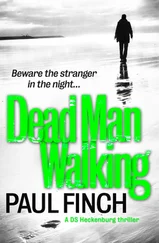
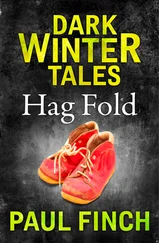
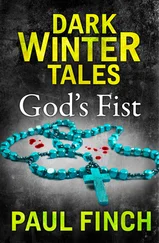
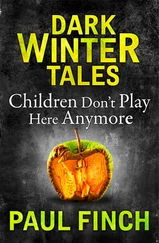
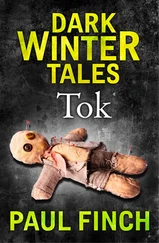
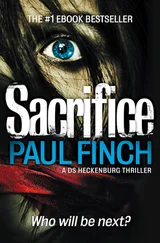

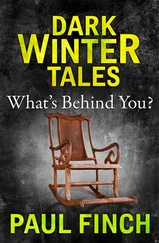

![Paul Finch - A Wanted Man [A PC Heckenburg Short Story]](/books/702381/paul-finch-a-wanted-man-a-pc-heckenburg-short-sto-thumb.webp)
